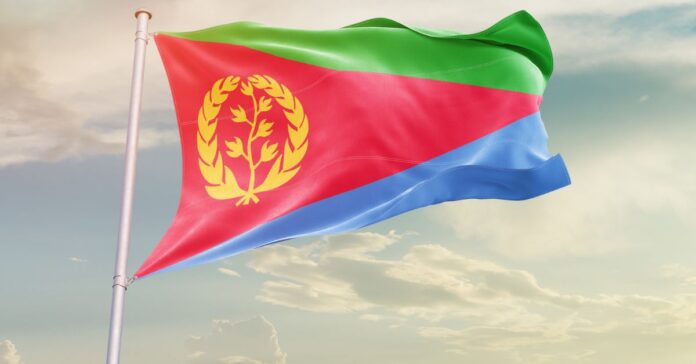Following Daniel Mulugeta’s article, published on August 11, 2025, in Setit as a response to Ann Garrison’s piece in the Black Agenda Report, it seems essential to broaden the discussion on Eritrea’s political condition and on the narratives surrounding it. Mulugeta’s intervention had the merit of cutting through ideological simplifications, contrasting Garrison’s portrayal of Eritrea as a defiant, sovereign nation with the reality of a political system frozen for decades. He reminded readers that both the 1994 Charter and the 1997 Constitution—documents drafted by Eritreans for Eritreans—could have paved the way for gradual political participation, but were soon shelved. Since 2002, parliament has not convened; the PFDJ congress has been suspended since 1994; and several key ministries remain leaderless. Within this institutional vacuum, the Eritrean diaspora remains split between those who support the government as a bulwark of sovereignty and those who denounce its absence of rights and accountability, without either side finding solid democratic legitimacy. This is where the debate can be expanded by introducing a broader analytical category: campism, a concept Étienne Balibar has used to describe the tendency to reduce international politics to a binary choice of alignment, for or against the West, regardless of the internal nature of the regimes concerned.
Campism emerged in the Cold War, when the world was divided into two rigid blocs: the capitalist camp led by the United States and the socialist camp under the Soviet Union. In that environment, legitimacy was not measured by domestic institutions but by geopolitical positioning. As Balibar suggests, campism is not so much a coherent theory as an ideological reflex: the enemy of my enemy is my friend. Even today, this reflex survives in parts of the Western left, leading to support for authoritarian governments solely because they oppose Washington or Brussels. The logic appears simple: the West has a long record of colonialism, coups, and economic domination, so any government resisting it must represent emancipation. Yet this view fails to account for what truly matters—the lived realities and aspirations of ordinary people. It is indeed true that the United States orchestrated the overthrow of democratically elected governments in Latin America, Asia, and Africa, with the CIA often playing a central role and European powers such as France and the United Kingdom also implicated. But to acknowledge these historical crimes does not mean suspending judgment on regimes that repress their citizens. In this sense, campism risks turning a legitimate critique of neo-colonialism into a convenient alibi for authoritarianism.
Eritrea provides a telling example of the limits of campism. Supporters of the government often describe Isaias Afwerki as the guardian of sovereignty, the leader who defended the nation against foreign interference after a long history of colonial domination. Such arguments resonate strongly with a people who have endured Ottoman, Italian, British, and Ethiopian rule. Yet opposition voices—both inside Eritrea and in the diaspora—point to equally undeniable realities: systematic violations of human rights, indefinite military conscription, arbitrary arrests, and the dismantling of any independent civic space. The problem is that this opposition also struggles to build a democratic base of legitimacy, precisely because the regime has dismantled the institutional framework that might have allowed alternatives to emerge. The result is a sterile polarization: government supporters retreat behind the rhetoric of anti-imperialism, while critics are dismissed as foreign agents or tools of Ethiopia and the West. In both cases, campism functions as the interpretive filter: legitimacy is defined not by institutions or rights, but by alignment in a geopolitical contest. This logic leaves unaddressed the central question: how can Eritrea build an internal democratic compact that transcends the stalemate between the regime and its opponents?
Eritrea’s experience illustrates that campism is not merely a theoretical notion but a real obstacle to political imagination. Persisting in the logic of “camps” obscures the most pressing questions: how to build representative institutions, how to secure the rule of law, and how to reconcile sovereignty with freedom. It is undeniable that the West cannot claim moral superiority, given centuries of colonial exploitation and the neo-colonial practices that have stifled democratic experiments in the Global South. But this does not mean that demands for liberty and democracy are foreign impositions. On the contrary, they are universal aspirations that cannot be erased by an abstract anti-imperialism. Eritrea, like other nations, faces the dual challenge of protecting national sovereignty while granting citizens meaningful rights. To move beyond campism is to recognize that freedom is not an imported concept but a condition of dignity for all political communities. Only by embracing this universality can the aspirations of the Eritrean people—so often silenced by competing narratives of power—find their rightful place in the broader struggle for emancipation.
Bibliography
Balibar, Étienne. On Universals: Constructing and Deconstructing Community. New York: Fordham University Press, 2020.
Bayart, Jean-François. The State in Africa: The Politics of the Belly. Cambridge: Polity Press, 2009.
Clapham, Christopher. Africa and the International System: The Politics of State Survival. Cambridge: Cambridge University Press, 1996.
Mamdani, Mahmood. Citizen and Subject: Contemporary Africa and the Legacy of Late Colonialism. Princeton: Princeton University Press, 1996.
Young, Crawford. The Postcolonial State in Africa: Fifty Years of Independence, 1960–2010. Madison: University of Wisconsin Press, 2012.

